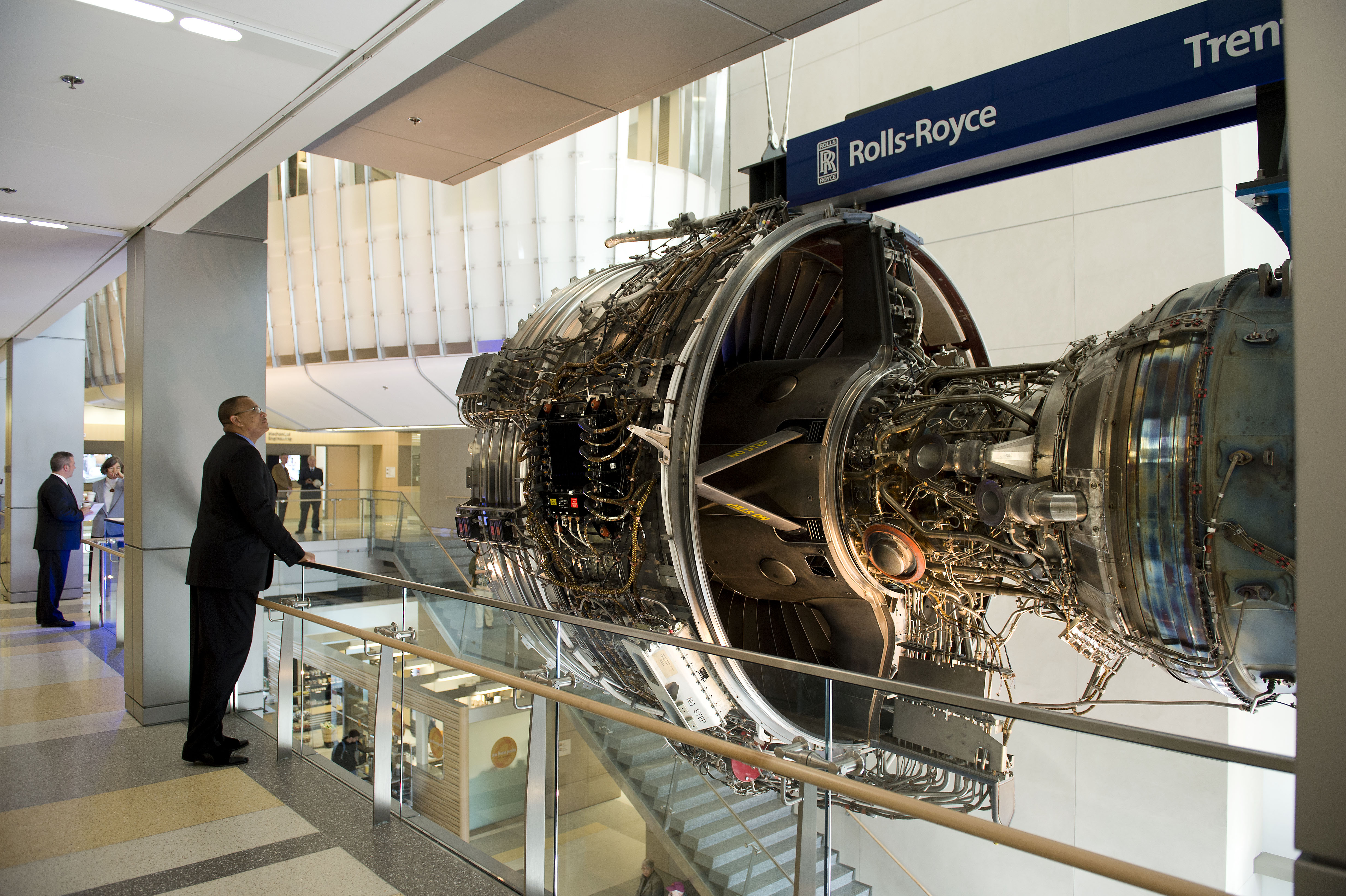Three engineering students to receive $30,000 Rolls-Royce Fellowships

Virginia Tech's College of Engineering has named three 2015 Rolls-Royce Doctoral Students. Each one receives an annual stipend of $30,000, full tuition and fees, health insurance, and an annual travel budget of $2,500.
These prestigious awards went to: Christina DiMarino of Yorktown Heights, New York, of electrical and computer engineering; Matt Jones of Falls Church, Virginia, of aerospace and ocean engineering; and Austin Scherbarth of West Chester, Ohio, of materials science and engineering.
The fellowships evolved from the strategic partnership of Virginia Tech, the University of Virginia, Rolls-Royce, and the Commonwealth of Virginia. These four entities entered into an innovative strategic partnership to define the next generation of power systems for aerospace, energy, and marine applications. This fellowship supports students pursuing topics of interest to Rolls-Royce, Virginia Tech, and other partners. Each Rolls-Royce Doctoral Student is supported for up to three years.
DiMarino received her master's degree in electrical engineering at Virginia Tech. She served as a research assistant to Dushan Boroyevich, professor electrical and computer engineering and a member of the National Academy of Engineering, and Rolando Burgos, associate professor of electrical and computer engineering. Both are members of the Center for Power Electronics.
As a Rolls-Royce Doctoral Student, DiMarino will continue working with Boroyevich and Burgos, and is currently part of the International Research Experience for Students (IRES) program. She is spending the semester with the University of Nottingham's Power Electronics, Machines, and Control Group in Nottingham, United Kingdom.
DiMarino is already a co-author of eight technical papers, and is currently working on the design and development of a high-efficiency power module.
Jones earned his bachelor's degree in aerospace engineering from Virginia Tech and is expected to receive his Ph.D. in May of 2018. He is working with his adviser, Eric Paterson, the Rolls-Royce Commonwealth Professor of Marine Propulsion and department head of aerospace and ocean engineering, on the investigation of environmental forces on oceanic boundary-free shear flow physics.
Jones is also studying specific features of the Joubert submarine that has a fully rotating propeller. He is the co-author of three technical publications.
Scherbarth has a bachelor's degree in materials science engineering from Purdue University. At Virginia Tech he is working with Gary Pickrell, professor of materials science and engineering and director of the Commonwealth Center for Advanced Manufacturing Surface Engineering group.
While at Purdue, Scherbarth completed four master's level courses and he was on a Presidential Scholarship for Academic Achievement for four years. He worked on four different undergraduate research projects.
Technical areas of interest for the Rolls-Royce doctoral students include: next-generation materials, coatings, and thin films; electrochemistry, including corrosion and high-temperature oxidation; propulsion; combustion, including afterburners; machine controls and mechatronics; computational fluid dynamics; energy storage; manufacturing systems; thermal management; mechanics; and multi-functional materials.
The selected students are encouraged to interact with Rolls-Royce Research Centers worldwide, but a significant portion of award-relevant research will be performed at Virginia Tech.
Examples of the Rolls-Royce partnership include the creation of the Commonwealth Center for Advanced Manufacturing and the Commonwealth Center for Aerospace Propulsion Systems, which are being developed jointly by the University of Virginia and Virginia Tech. Such initiatives will serve as focal points for strong interdisciplinary collaborations between industry, government, and academic organizations.



